If you have the talent, passion and an ambition to make a name for yourself as a film composer or songwriter, you may some day meet Paul Broucek, who is the President of Music at Warner Bros. Pictures. A short list of projects he has overseen in his current position include "The Lord of the Rings" film trilogy, the "Austin Powers" films, the "Rush Hour" film series, "Wedding Crashers," "Hairspray," "Sex and the City," "American History X," "The Notebook," and the most recently, the new Baz Luhrmann movie "Elvis." Here's a longer list.
His career began like so many with a passion for music, playing in a band and discovering the recording studio. He eventually participated on the recording staff at both The Record Plant in Los Angeles, during the time they opened a film scoring division, and also at The Plant Studios in Sausalito, California, where he was mentored on the business side by its founder, Chris Stone. Following this he became president of Fairlight North America, during the iconoclastic company's glory years in the mid 80s. From there he began supervising music for films and that eventually led him to his current position.
Today Paul's 40+ years of experience have given him a deep understanding of every aspect of selecting and mixing music and sound for film and allow him to communicate across any discipline, from the initial sketch to the final release of a motion picture:
- Musician - Check. Like so many in our industry he started as one.
- Recording engineer - Check.
- Salesman - Check.
- Soundtrack composer - Check.
- Producer - Check.
- Project coordinator - Check.
- Music supervisor - Check.
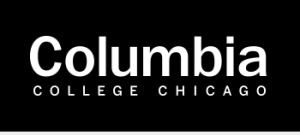 In addition to his day job Paul also participates as a guest lecturer for prestigious music for film study institutions like Berklee, Columbia College Chicago, and USC. We're grateful to him for taking some time to speak with us about some of the things that have helped him build a successful career in the music and film industry.
In addition to his day job Paul also participates as a guest lecturer for prestigious music for film study institutions like Berklee, Columbia College Chicago, and USC. We're grateful to him for taking some time to speak with us about some of the things that have helped him build a successful career in the music and film industry.
What originally drew you to music?
Music was always part of my life. My father was a classical singer and he would teach my family to sing 4-part harmonies of gospel and Stephan Foster tunes while we were in the car on road trips. My mother played piano. Of course there was the Beatles, and the British invasion. When they appeared on the Ed Sullivan. It was a pretty dark period for all of us following the Kennedy assassination. They were talented, fresh and funny and I was inspired to take up guitar.
I was part of a high school band. We gigged a lot. I got a charge out of exploring the pocket as a rhythm guitarist and the band got an opportunity to record at a small mom and pops studio, where most of the other recordings were of polka bands. The lead singer had written an insipid song that went something like (sings) "da, da, da, dada, da, da, da." I still remember it today, but the thrill of hearing what we actually sounded like, it was magical for me, like the first time you hear your voice recorded. I decided at that time that this would be part of my future if I had anything to say about it.
While I was in college the Chicago chapter of NARAS ran a couple day workshop at Bill Putnam's Universal Recording Corporation studio. I was completely hooked. I knew I wanted to be a record producer.
Moving forward a few years you were on the Apocalypse Now sound team. How did you get your foot in the door at Zoetrope?
I was working at Retina Circus (Renamed McCune now the location of Blue Bear School of Recording) in San Francisco as an assistant recording engineer, basically a paid intern. During that time I learned how to operate open reel pro multitrack tape machines, which were a lot more complex than my Tascam 3340 4-track. We were generally the first ones to the studio and the last ones to leave, but I didn't have the pressure of doing final mixes at that time, and that was fine, because I was just anxious to learn.
I wanted to advance my career and the Record Plant in Sausalito was THE place to be. There were no openings there, but the night manager introduced me to Tom Scott (legendary recording engineer) who told me Zoetrope was looking for people, so I went in for an interview and got the job as a machine room operator. We were locking a 35mm film chain to two 24-track open reel machines. This was before SMPTE and we had to sync with a minimag.
I learned on the job as an assistant to (legendary film and sound editor) Walter Murch over the 10 months the movie spent in production. We worked in a tiny room with (6 track?) tape and large mag machines. This was before the time of SMPTE so we had to synchronize the film and tape machines manually. It was an amazing experience. The soundtrack was an example of some of the earliest sound design as Patrick Gleeson would add synthesizer sounds to the recorded sound effects at Different Fur Studios in the fall of 1979.
I decided to move to LA and interviewed with Chris Stone. He said "you're overqualified to be a janitor or a runner." There was a bit of a hazing system in the studio because they needed to make sure the new guys wouldn't distract the artists. But I wanted it, so within six months I was working the remote truck and one of my first projects was being on the crew for the Eagles' Long Run album.
This was also a time when Frampton Comes Alive was a huge success and labels wanted live recordings of bands, usually from venues in the Midwest like St. Louis, Cleveland, Milwaukee, and Chicago. We would go out and record 4 or 5 nights in a row. It was hard work, but I loved it.
How did you make the career transition to running Fairlight North America?
I was working at The Plant when Stevie Wonder was recording there. I loved Stevie, and would often sub for his regular crew. Stevie was constantly being given the latest gear by companies seeking his endorsement, and one day a Fairlight showed up. I set it up and spent some time learning how it worked. A while later I was introduced to the company by their publicist Bobbi Marcus, who was also happened to be the publicist for The Plant, and a dear friend.
I had two small kids and needed a steadier paycheck than I could get as a freelance recording engineer. Fairlight was really interesting. It was cutting edge music technology at the time and the job allowed me to develop connections with musicians like Peter Gabriel and Hans Zimmer, as well as other top studios. It sounded great and still does, even today. It also taught me that Australians have a different way of doing business. (laughs).
Peter Gabriel demonstrates the Fairlight
How did you get started at NLC? Was there an important break or a relentless grind? Is there a typical path for people trying to get into the film music supervision?
Right about the time that Fairlight was melting down I got a call from my friend Jon Poll who is now a prominent feature film picture editor, but at the time was a student at USC Film School. MTV was just getting off the ground, so we decided to experiment with the medium. Jon did the video and I did the soundtrack. We were going for a cross between the Police, David Bowie, and Oingo Boingo, if I remember correctly, and we recorded it with off hours at the Record Plant in LA in 1981. It became Hollywood Halloween. That video is still in rotation in part because of Beavis and Butthead referred to it on their popular show and that put us on the map. We're actually about to remaster it for its 40+1 anniversary.
Beavis and Butthead with a politically incorrect Hollywood Halloween
Later in 1988 we were hired to do a series called TV101. We worked with a range of artists like Stewart Copeland, who did the pilot, some of the episodes were done by Todd Rundgren, and Jeff Skunk Baxter who is still one of my heroes. It wasn't picked up for a second season, but doing the series exposed me to all aspects of the business, from working with artists, to negotiating contracts, to production and post-production.
Also, during this time I met Evyen Klean, who became an important business partner for me. We did five years of Baywatch together before I decided to go in-house at New Line Cinema. We picked the music, worked with the composer, and spotting episodes with the editor and producer.
I should mention that TV has always been a producer's medium while feature film is a director's medium. If you are a director in television you prep a show, you shoot it and get your cut while you are probably prepping another show for perhaps a completely different series.
What elements of the music craft that you refined when you were younger have served you best as you ascended to your current role?
Communication is critical. I think it's important to be a sympathetic and understanding ear to every person involved in the process from the beginning to the end. Everything I have ever done with music from my earliest days has led to my ability to do that.
I've worked on films where we had a highly skilled director, who was able coax amazing performances from the characters in the film, but was intimidated by the composer who was scoring the film. Because I had been there before I was able to help by just asking him to pretend he was speaking to an actor or actress and just communicate the feeling he was looking for in a scene. It was not the composer's job to work with the actors, but rather to turn that feeling into music.
Film and music are highly competitive industries. Was there any particular moment where you thought to yourself, hey I think I'm in? How did you know?
There's a concept of the imposter syndrome. You're starting out in a new opportunity and stretching your skills, and you haven't actually done a specific job, but you need to project confidence. I have always built on that, and it was somewhere in my mid-40s when I started to feel like, I got this. I no longer felt like an imposter. It really hit home when I was doing the Lord of the Rings Trilogy. After that I felt like I was ready for anything. We had to hire huge orchestras for weeks in London. We had to hire opera singers and choirs and specialty instrumentalists and Elizabeth Frazier and Annie Lennox. It was just a massive production. After that I felt like I could do just about anything. Olympics Opening Ceremony, bring it on...(laughs).
How do you personally stay connected with current music styles in order to be effective professionally?
It's easy. I have a great staff many of whom have been with me for years. They have different backgrounds and tastes and we're all super passionate about music. We're constantly on the lookout for new artists we share music with each other. I keep a very open mind and, when it's called for, I'll learn everything I can about a new artist, whether it's Dua Lipa or Harry Styles, or an older artist that somehow we might have missed.
I remember once getting to meet Chris Blackwell, at an event. He was one of my heroes. Island Records was a label that I would buy anything that came out on it, even if you didn't know the artist. It had a certain identity to it that came directly from Chris. My wife was with me and she asked Chris how he managed to start a record label. He said: "I love musicians and I don't play an instrument, so I had to figure out away to hang around with them."
I still play with a band. It's my poker night. We do mostly instrumentals and I just finished building a studio at my house. When some people have a midlife crisis they buy a Lamborghini. I decided to have George Augspurger design my control room.
Do you still stay connected to music technology? If so, is there anything special you have noticed recently?
It's an important part of my job. Knowing what tools people are using can give me an insight into how they might work, so it's very helpful to stay current. I have always enjoyed knowing about the latest stuff and this has informed my career. If you are curious about what's out there and continue to learn new things, when the opportunities arise you are prepared for them and have an instinct you can act on. My earliest memory of music tech was actually buying an Apple IIe (alphaSyntauri) and making synthesized sounds with it. I was pretty blind about computers at the time, but I had a hunch computer technology would play an important role in music making.
You supervised the music for the recently released Baz Luhrmann movie, "Elvis," who recorded in the days of tape, with few overdubs. How do you think technology has impacted music since those days?
It's fascinating how technology can change how people make music. Take Autotune, which drove a singing style. We have had bands in to do showcases where the singer is mimicking the AutoTune effect as a stylistic choice without actually using the software.
There are composers like Hans Zimmer who figured out right away how to use the computer effectively and are incredibly prolific as a result. I should just add that, even with all the amazing tools available now, there, is nothing like the way a 96-piece orchestra sounds and feels when everyone is in the same room and playing off each other.
As far as recording goes, there are so many ways to learn the technical skills now that didn't exist at the time I started out. Schools like Berklee, Columbia College Chicago, and USC have great programs. There are so many online tutorials and tools that don't just help with learning the craft, but also learning about how the business works.

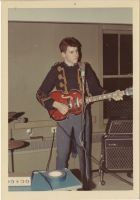
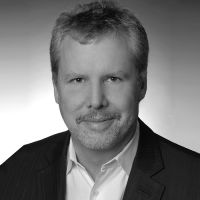
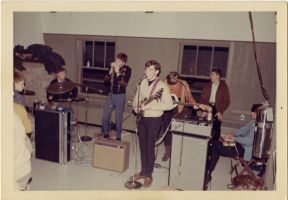
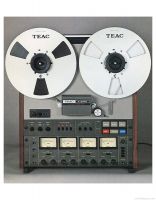
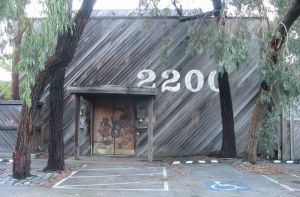
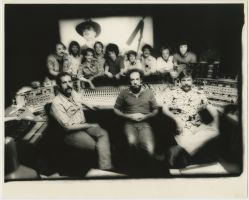
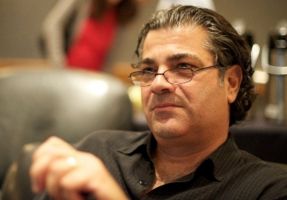
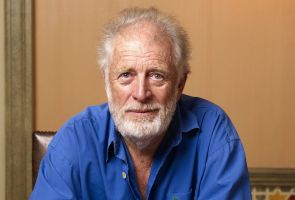

 Other Related News
Other Related News
